Singles' Day sales losing their shine in China: How long can e-commerce platforms keep reducing prices?
With the annual Singles' Day sale coming around again, e-commerce platforms are once again preparing to fight for a slice of the consumer market, not just among themselves but now also with physical stores joining the mix. But as consumers become more prudent in their spending and less inclined to navigate complicated terms and conditions for discounts, what can e-commerce platforms do to survive?
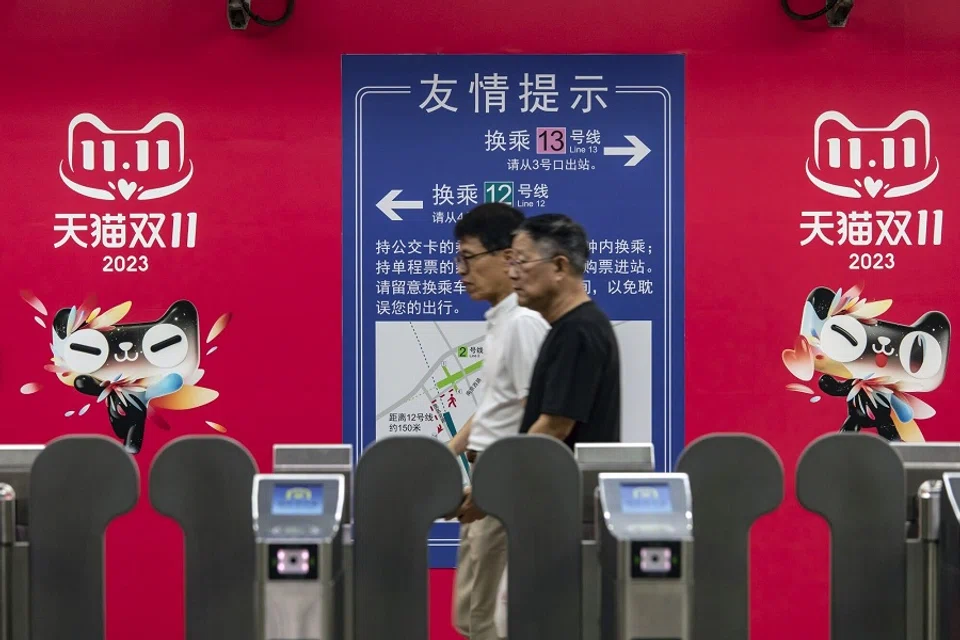
It has been 15 years since the 11 November Singles' Day sales event was launched. This year, e-commerce platforms are readying for battle once more, blasting their slogans and banking on enticing loyalty points and discounts to rake in the money from consumers.
E-commerce platforms offering rock-bottom prices
E-commerce platform Kuaishou started the ball rolling, announcing their Singles' Day deals on 18 October. Competitors including JD.com, Taobao, Tmall, Pinduoduo and Xiaohongshu swiftly followed suit.
To stand out among the crowd, each e-commerce platform has come up with its own slogans and selling points.
JD.com has launched major price reductions and discount vouchers of up to 11,111 RMB (US$1,527), while Tmall is giving a lowest price guarantee for 80 million products. Pinduoduo, Xiaohongshu and Douyin's e-commerce arm are promoting direct discounts on single-item purchases, or discounts with no minimum purchase required.
On 31 October, Reuters carried an article quoting industry sources saying Alibaba told merchants on its Tmall and Taobao platforms to offer products at the lowest prices among all platforms; if they are found offering equal or less pricing on any other platform, they risk losing traffic and consumer support, and may even be kicked off the platform.
... this year, most e-commerce platforms have opted for a more direct approach to offering rock-bottom prices.

These sources said Alibaba's push to get merchants to toe its line is unusual for the company.
Unlike in the past, where discounts and deals were set for midnight on 11 November, and consumers had to accumulate purchases and negotiate confusing terms to enjoy discounts, this year, most e-commerce platforms have opted for a more direct approach to offering rock-bottom prices. What has not changed is the low-price strategy.
...after 15 years, Singles' Day seems to be looking tired, and the standard low-price strategy of these e-commerce platforms seems to be no longer working.
Tmall released statistics showing that since its Singles' Day deals went live at 8pm on 31 October, 155 brands on its platform hit combined sales of more than RMB 100 million, while 71,900 brands sold more products within the first hour of sales this year than the entire Singles' Day in 2022.
JD.com also posted stellar numbers; nearly 30 brands broke RMB 1 billion in sales in the first week since the start of sales on 23 October, while in terms of sales volume, nearly 15,000 brands grew by more than five times year-on-year, and almost 9,000 brands grew by more than 10 times year-on-year.

Looking at these statistics, it is highly likely that the epic Singles' Day sales will continue this year. And yet, quite a number of Chinese media outlets are saying that after 15 years, Singles' Day seems to be looking tired, and the standard low-price strategy of these e-commerce platforms seems to be no longer working.
More complicated terms and less sincere deals are eroding the sense of novelty among consumers towards Singles' Day...
Fading novelty of Singles' Day
The main reason for this jadedness is the long-faded sense of novelty of Singles' Day among the Chinese.
A post-90s white-collar worker from Guangzhou said in an interview with Time Weekly that when she first participated in the Singles' Day event in 2015, the promotions and discounts were attractive. However, she has found that in recent years, Singles' Day sales are no longer about a simple race against the clock, as the terms became increasingly complicated: "I studied the terms for ages but I couldn't understand. It wasn't a good experience."
Many netizens also complained that the discounts on some platforms were not sincere. "Some brands even mark up their prices before Singles' Day and then drop them back to the original price on 11 November, pretending there is a discount when in fact there is none."
More complicated terms and less sincere deals are eroding the sense of novelty among consumers towards Singles' Day, as they are more inclined towards simple price reductions rather than convoluted approaches.
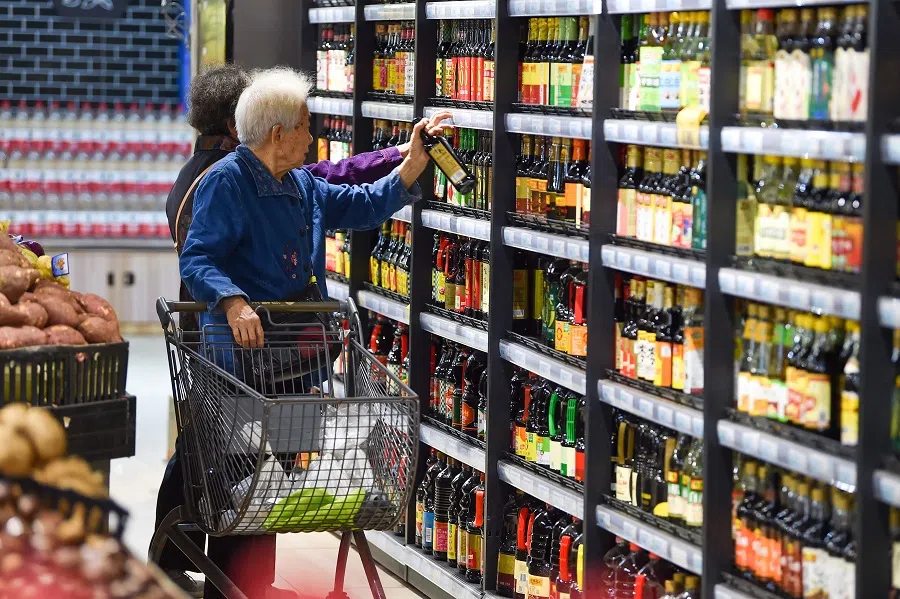
A survey by the Southern Metropolis Daily published on 28 October showed that 48.51% of the respondents, tired of ongoing manipulations by e-commerce platforms, consider straight-forward discounts a crucial factor for satisfaction. They want direct price reductions or bundle deals, not complicated math and accumulation of purchases just to qualify for "the lowest price of the year".
Physical stores joining in
Yet it is not just online e-commerce platforms that are reducing prices; brick-and-mortar supermarkets have also joined in the price war this year.
Yonghui Superstores, Hema Xiansheng and even time-honoured brands such as Bubugao Supermarket are learning a trick or two from online platforms and launching discounted products. Yonghui has opened discount stores in their supermarkets, Bubugao is transforming into a discount store, while Hema Xiansheng is offering different online and in-store prices.
According to reports, their goal is not only to outwin competitors, but also to share the pie of online e-commerce platforms and increase footfall in physical supermarkets.
... e-commerce players could lose out to supermarkets this year as the latter are offering cheaper products in their physical stores.
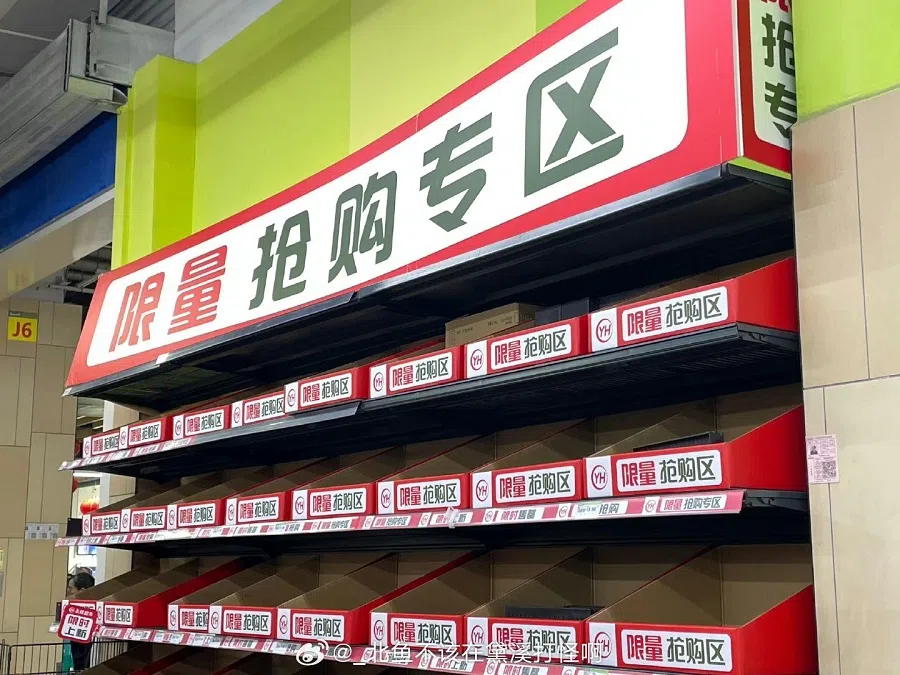
Some media outlets said e-commerce players could lose out to supermarkets this year as the latter are offering cheaper products in their physical stores.
Faced with competition from physical supermarkets, e-commerce retailers can only respond with even more aggressive price cuts.
... "consumption downgrading" is a new trend among Chinese youths.
Consumption downgrading driving price wars?
Besides market factors, changes in Chinese consumer mindsets have also driven repeated price cuts on e-commerce platforms. Chinese consumers are inclined to spend less and save more as public confidence about economic recovery has been dampened by the three-year pandemic and the property crisis.
Data from the People's Bank of China released in July showed that household deposits have increased by 11.91 trillion RMB in the first half of this year, a ten-year high. This is rather unusual, given the repeated lowering of deposit rates by state-owned banks.
This also shows that "consumption downgrading" is a new trend among Chinese youths. Rational spending, careful budgeting and cost-effectiveness are the key words that come to mind before young people spend their money, which is the main reason why price wars have recently erupted in various areas.
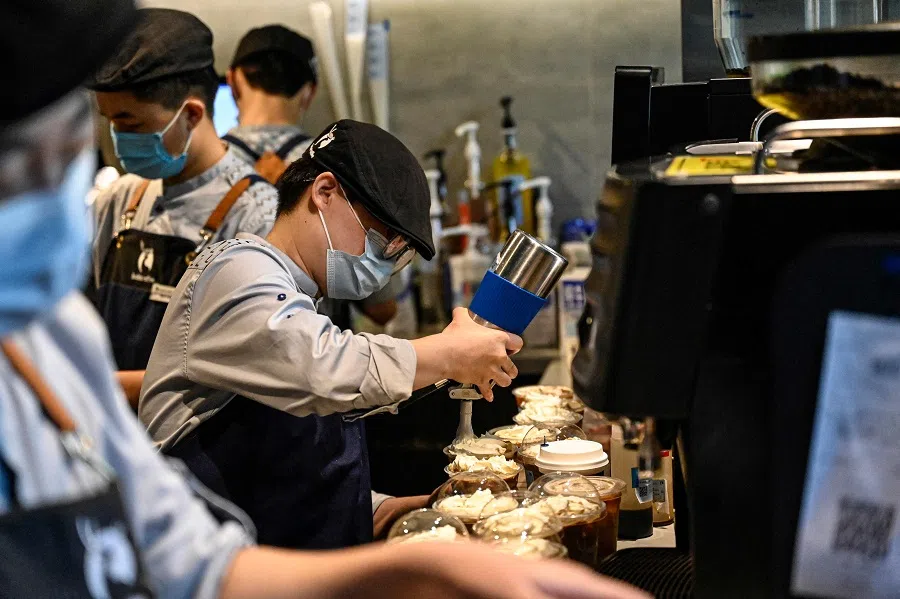
For example, Chinese coffeehouse chain Luckin Coffee rose to fame by beating Starbucks with low prices. But now, this coffeehouse giant is embroiled in an intense price war with the newcomer, Cotti Coffee.
To compete with Luckin, Cotti, whose stores were often located near Luckin, lowered the prices of its lattes to 9.90 RMB a cup this February, forcing Luckin to further reduce its price and even vow maintaining the reduced price for two years. Six months later, Cotti further lowered its prices to 8.80 RMB per cup.
The effect of this 1 RMB price reduction cannot be underestimated. Within a year of its establishment, Cotti opened over 5,800 stores, selling an average of over 400 cups of coffee per store per day.
The same phenomenon can also be observed in the electric vehicle and catering sectors.

Some companies saw opportunities amid the consumption downgrading wave. For example, Mixue Ice Cream & Tea successfully made a name for itself in China and overseas selling iced coffees and bubble teas for less than US$1.
... the trend also reflects Chinese consumers shifting away from luxury goods.
Deciding what to spend on
Low prices are not only a strategy for Chinese enterprises to grab market share, but the trend also reflects Chinese consumers shifting away from luxury goods.
The 2023 Social Trends Observation Report commented on the 2023 McKinsey China Consumer Report released in December 2022, saying that the anti-consumption behaviour is also an attempt by Chinese consumers to take control of spending, not be tied down by materialism, and to define and choose one's own way of living.
A Sina Hotspot (新浪热点) poll launched on Weibo on 31 October showed that 557 of 1,122 respondents had a budget of less than 200 RMB for the Singles' Day sales this year, while only 191 had a budget of more than 2,000 RMB.
... it is difficult to escape the logic of low prices and price cuts under present circumstances.
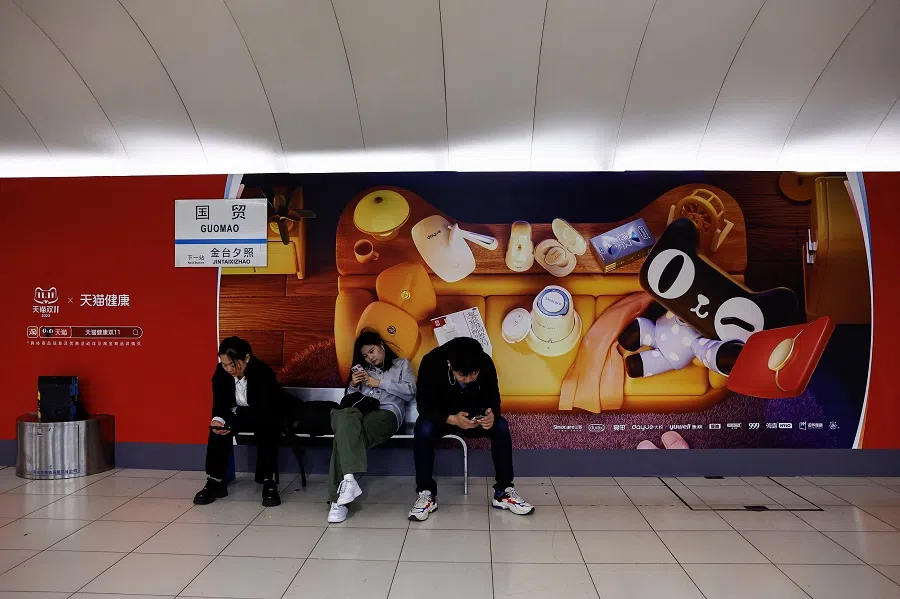
E-commerce platforms are left with few options when it comes to winning, even when unrelenting pricing wars are eating away at their profitability. The mindset of Chinese consumers has changed, and it is difficult to escape the logic of low prices and price cuts under present circumstances.
Whether e-commerce platforms can continue to create miracles in the Singles' Day sales next year, or even in the next few years, will depend on how they can continue to stay forward-looking and innovative, and create a stimulating consumption environment that goes beyond the offer of low prices.
This article was first published in Lianhe Zaobao as "双十一15载 电商降价牌还能"卷"多久?".



![[Big read] When the Arctic opens, what happens to Singapore?](https://cassette.sphdigital.com.sg/image/thinkchina/da65edebca34645c711c55e83e9877109b3c53847ebb1305573974651df1d13a)
![[Video] George Yeo: America’s deep pain — and why China won’t colonise](https://cassette.sphdigital.com.sg/image/thinkchina/15083e45d96c12390bdea6af2daf19fd9fcd875aa44a0f92796f34e3dad561cc)
